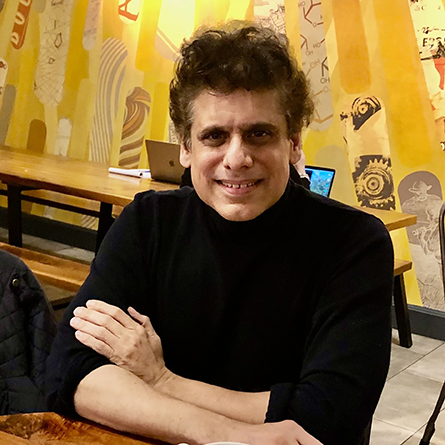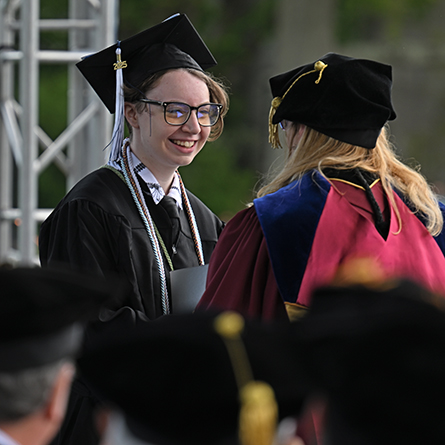
Conn professor elected president of the Society for Qualitative Inquiry in Psychology
Sunil Bhatia, the Lucy Marsh Haskell ’19 Professor of Human Development at Connecticut College, has been elected president of the Society for Qualitative Inquiry in Psychology (SQIP), a thriving society under the American Psychological Association, for the 2023-2024 academic year. According to its website, “SQIP aims to develop and disseminate qualitative methods suitable for acquiring knowledge of psychological life (broadly conceived including lived experience, expression, practice and social conduct).”
In psychology, qualitative methods glean subjective data from research participants through interviewing and observation. These methods can help researchers understand cultural and individual patterns of human meaning-making. Resulting data is grouped into categories and themes for analysis. Quantitative research methods are numbers-based and use statistical analysis to discover how many, how much or how often a behavior occurs. Data is objective and is gathered through measuring and counting. Researchers generally use both methods in their work.
For Bhatia, who joined the Conn faculty in 1999, his life’s work in psychology and human development has relied heavily on qualitative research, because he specializes in understanding the development of self and identity within the context of racism, migration, globalization and formation of transnational diasporas.
In a letter published in SQIP’s fall 2023 newsletter, Bhatia explains that his journey of embracing qualitative methods and inquiry began in graduate school at Clark University over two decades ago.
“At that time, qualitative inquiry was marginalized within the discipline and seen as lacking the vigor that was usually associated with experimental and positivistic methods,” he wrote. “Qualitative methods were considered ‘soft,’ ‘subjective,’ ‘unreliable’ and too often dismissed as unscientific and illegitimate for relying on ‘narrative’ and ‘stories’ for research. …Today, qualitative inquiry and methods in psychology continue to live on the margins, but [they have] found greater legitimacy and acceptance in the field. The creation of SQIP and Qualitative Psychology have played a pivotal role in positioning qualitative inquiry as central to the discipline of psychology.”
Bhatia calls his election to the top post of SQIP “a real honor.” Looking ahead, he said, “One important goal for me is to create spaces in the organization so we can engage with questions about which knowledge is given legitimacy, whose knowledge is considered superior, which methods are considered more valid, and who gets to own the narratives and instruments of knowledge-making.”
Bhatia said he hopes to “engage with these questions intentionally and with a greater sense of clarity, hope and solidarity to meet the demands of our contentious times and revive the sense of human possibilities.” Bhatia and his colleagues on the SQIP Executive Committee are currently organizing the SQIP 2024 Annual Conference, which will be held June 14-16, 2024, at Boston College.
Bhatia has received numerous awards, including Connecticut College’s 2018 Nancy Batson Nisbet Rash Faculty Research Award and the 2005 John King Excellence in Teaching Award; the American Psychological Association’s 2015 International Humanitarian Award; and the 2017 Theodore Sarbin Award for distinguished contributions to psychology.
In 2011, Campus Compact selected Bhatia as one of the four runners-up for the Thomas Ehrlich Civically Engaged Faculty Award, which recognizes faculty for leadership in advancing students’ civic learning. In 2007, Bhatia received a Community Service Award from the Connecticut Department of Higher Education. In 2001, the students of Conn College’s Unity House awarded Bhatia the Tyrone Ferdnance Award for excellence in teaching and community service.

